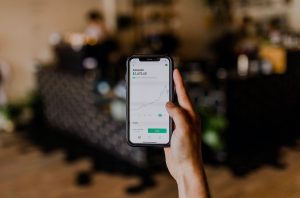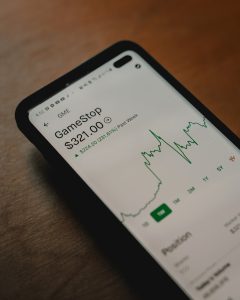Forex, or foreign exchange trading, is a global market where currencies are bought and sold. The market is open 24 hours a day, five days a week, and trades billions of dollars each day. For traders to participate in the forex market, they need a forex broker.
A forex broker is a company or an individual that provides traders with access to the forex market. Forex brokers act as intermediaries between the trader and the market, executing trades on behalf of the trader. In other words, they are the link between the trader and the market.
The role of a forex broker is critical to the success of a trader. Choosing the right forex broker can mean the difference between making profits or losing money. Therefore, it is essential to understand who your forex broker is and what they offer.
Types of Forex Brokers
There are three types of forex brokers: Market Makers, ECN Brokers, and STP Brokers.
Market Maker
A Market Maker is a forex broker that provides liquidity to the market by taking the other side of the trade. In other words, they take the risk of the trade instead of passing it on to a third party. Market Makers make money by charging a spread, which is the difference between the buying and selling price of a currency pair.
ECN Broker
An ECN (Electronic Communication Network) Broker is a forex broker that connects traders directly to the market. ECN brokers do not take the other side of the trade but instead pass it on to the market. ECN brokers make money by charging a commission on each trade.
STP Broker
An STP (Straight-Through Processing) Broker is a forex broker that passes the trade directly to a liquidity provider, such as a bank. STP brokers do not take the other side of the trade but instead act as a middleman between the trader and the liquidity provider. STP brokers make money by charging a markup on the spread.
Regulation
Forex brokers are regulated by financial authorities to ensure they operate in a fair and transparent manner. Regulation is essential to protect traders from fraud and scams.
Regulatory bodies vary by country, but some of the most well-known are the Financial Conduct Authority (FCA) in the UK, the National Futures Association (NFA) in the US, and the Australian Securities and Investments Commission (ASIC) in Australia.
Traders should always choose a regulated forex broker to ensure their funds are safe and the broker operates in a transparent manner.
Trading Platform
A trading platform is a software application that allows traders to access the forex market. The trading platform provided by a forex broker should be user-friendly and reliable. A good trading platform should allow traders to execute trades quickly and efficiently.
Most forex brokers offer the MetaTrader 4 (MT4) platform, which is widely considered the industry standard. However, some brokers offer their own proprietary platform, which may offer additional features and functionality.
Customer Support
Customer support is essential when trading forex. Traders should choose a forex broker that offers excellent customer support. The broker should be available to answer questions and resolve issues quickly and efficiently.
The quality of customer support can be an essential factor when choosing a forex broker. Traders should choose a broker that offers multiple methods of communication, such as phone, email, and live chat.
Conclusion
Choosing the right forex broker is critical to the success of a trader. Traders should consider the type of broker, regulation, trading platform, and customer support when choosing a forex broker. A good forex broker should provide excellent customer support, a reliable trading platform, and be regulated by a reputable financial authority.





